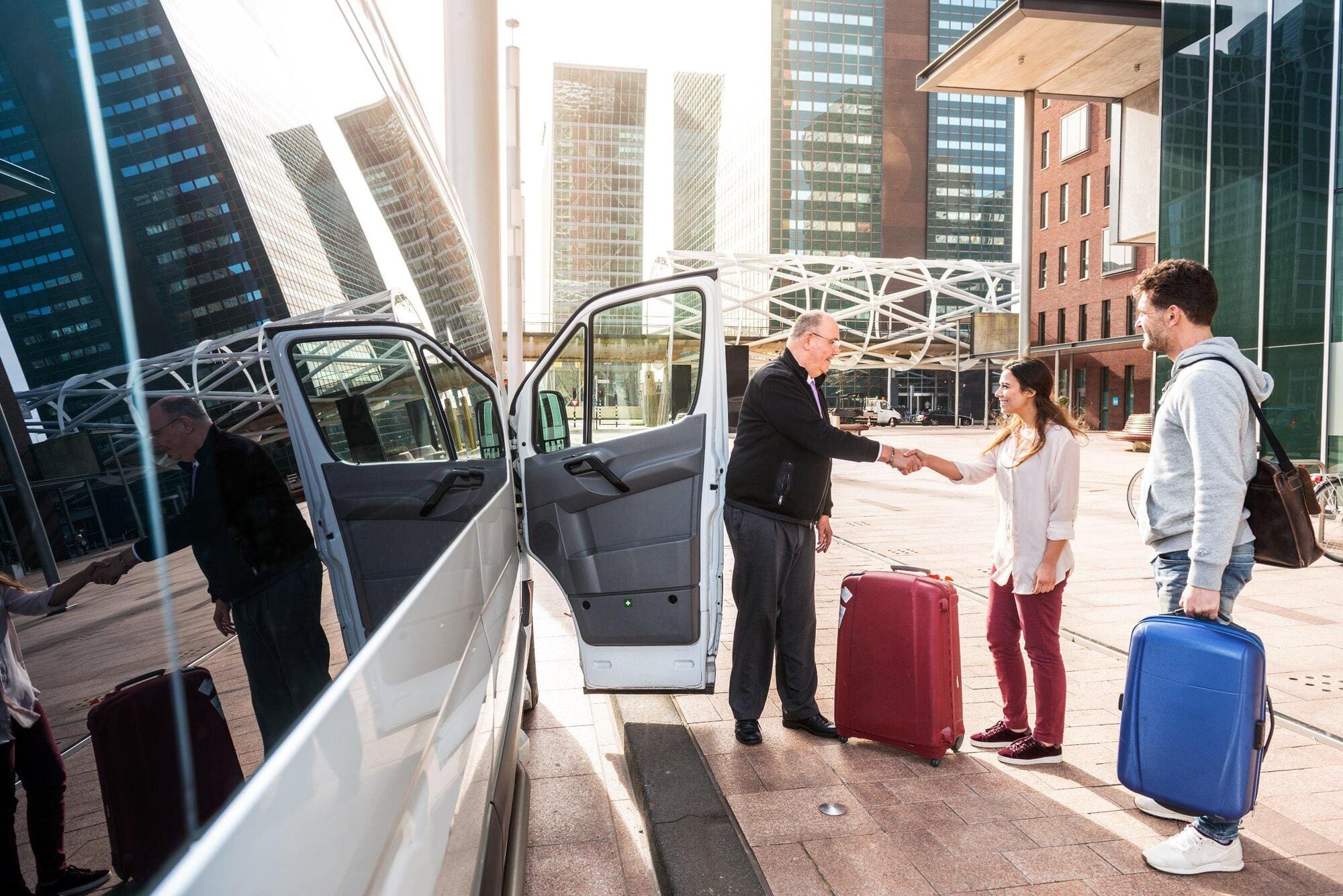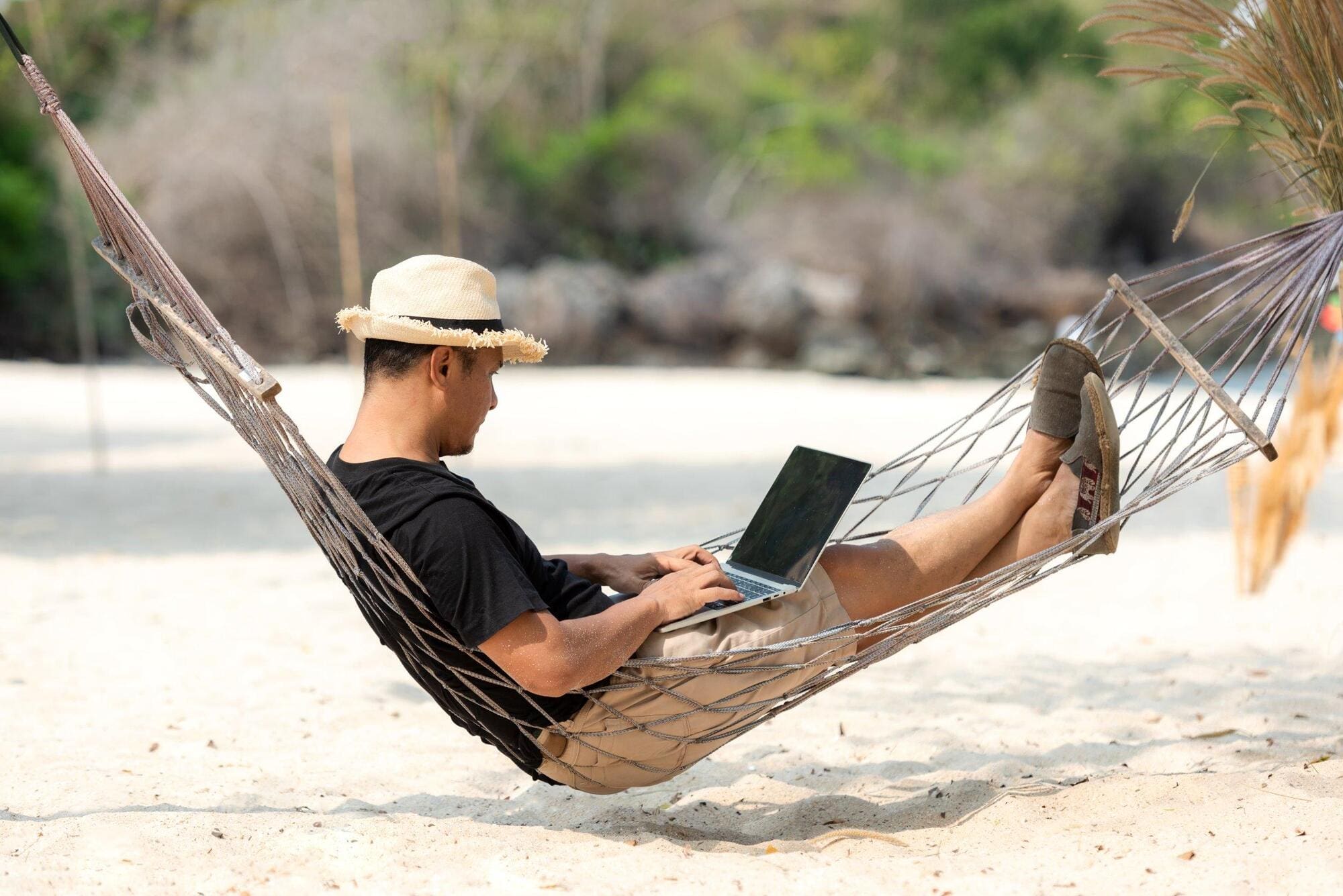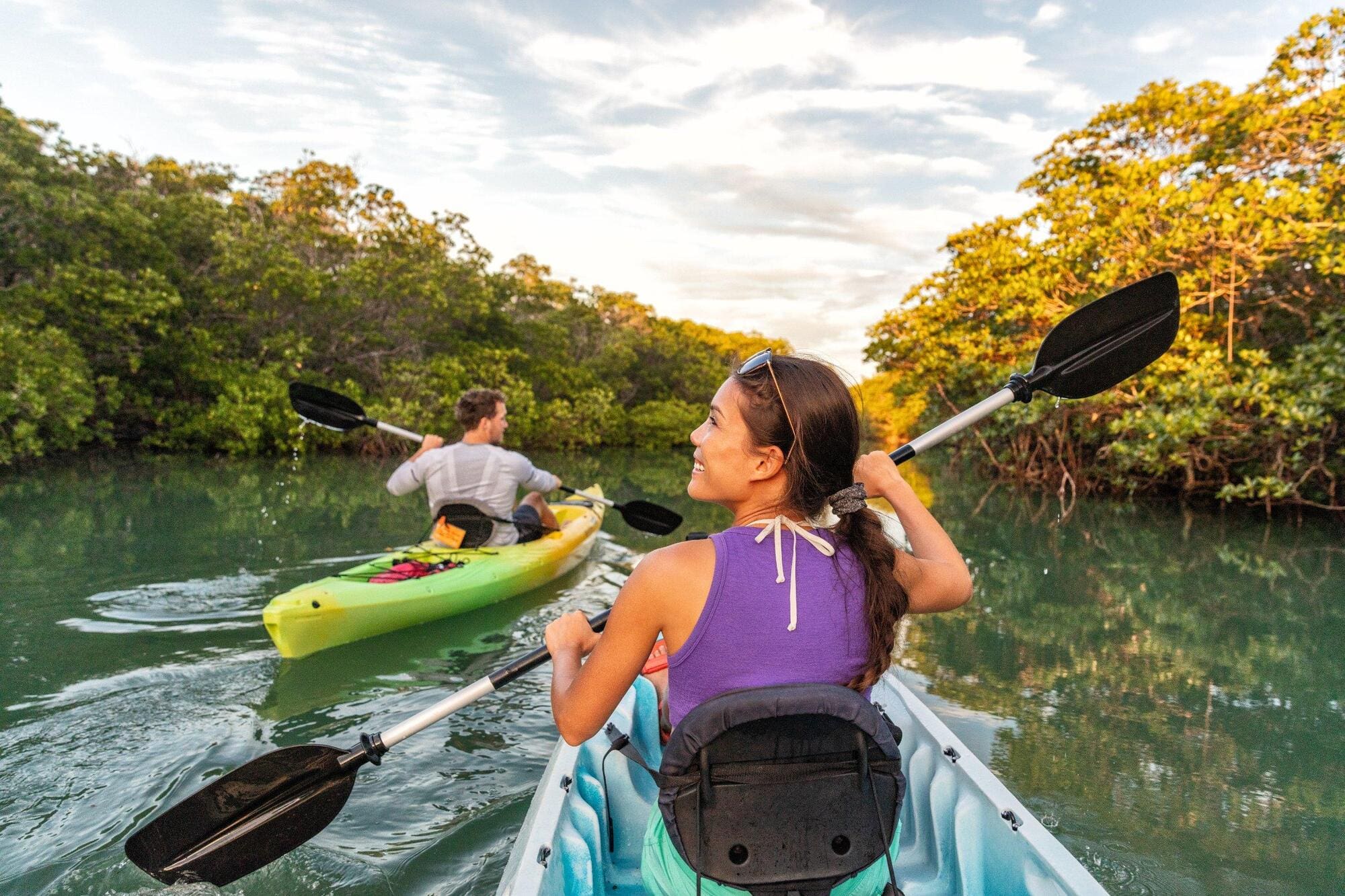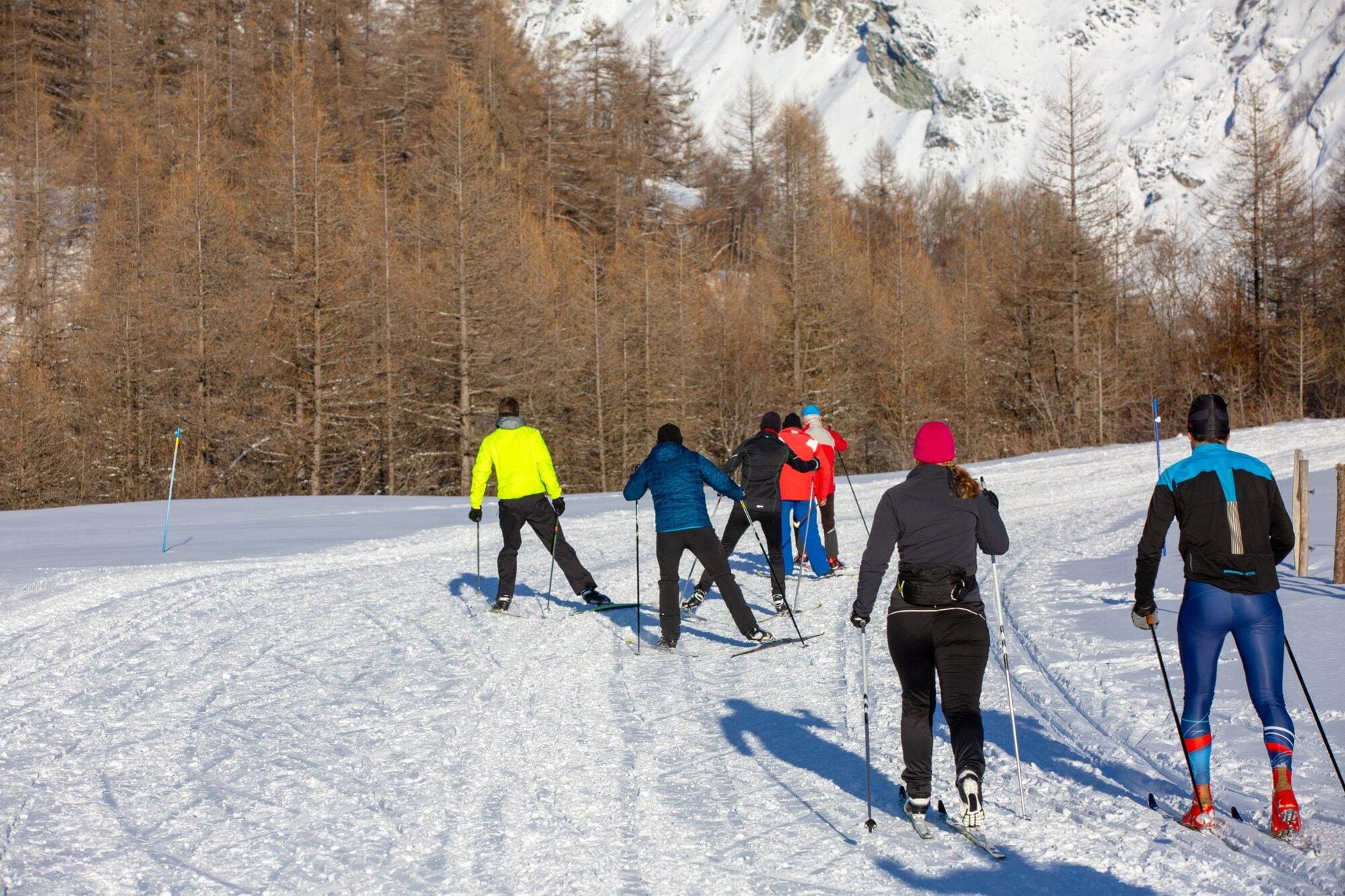In this Holiday Rep Career Guide
What Does A Holiday Rep Do?
Holiday reps are also sometimes known as resort reps, overseas reps, tour reps or customer services reps, and they look after groups of holidaymakers during their trip. They can work at various destinations globally and in different holiday resorts, parks, sites and hotels. They can also specialise in specific groups, such as children, over-18s, adults only and families, and in particular holidays, e.g. skiing, beach and city breaks. Therefore, what a holiday rep does will depend on where they work, who they work for and their rep role.
A holiday rep’s main aim is to provide excellent customer service and ensure holidaymakers have the best time during their stay and go home with a positive, memorable experience. They will be the first point of contact for guests, so they must make a good lasting impression. They will be responsible for ensuring things go as smoothly as possible and that their guests’ holidays are stress-free.
Holiday reps will carry out many tasks, including meeting and greeting holidaymakers at the airport, taking them to their destination, holding welcome meetings, selling, organising and booking activities and excursions, and dealing with any enquiries, complaints, problems and emergencies, etc. The role will also include administrative work, such as keeping records and writing reports and may require social media activity.
Holiday reps must enjoy being around people, as they will liaise with various groups and people during their work. They may work with colleagues, such as other holiday reps and other tour operator staff. They will also liaise with external stakeholders, such as airport staff, resort/hotel staff, groups of holidaymakers, transport companies, activities and excursions providers, hire companies, emergency services and others.
Holiday reps mainly work for tour operators, travel companies or agents. They can also work for hotel/holiday park in-house teams and private apartment/villa owners, and there may be an opportunity to freelance as a holiday rep with some companies. They can work at various places, such as resorts, hotels, holiday parks, campsites, chalets, etc.

Responsibilities
A holiday rep’s responsibilities can vary, but some examples of their duties can include (this list is not exhaustive):
- Researching and having up-to-date knowledge of the location, resort, facilities and things to see and do.
- Ensuring the accommodation standards are high and checking safety procedures.
- Carrying out health and safety inspections and completing risk assessments.
- Arranging transportation to and from the accommodation.
- Helping with transfers and checking guests into their accommodation.
- Meeting and greeting holidaymakers at the airport on their arrival.
- Taking holidaymakers to their destination, e.g. by coach, car or taxi.
- Holding welcome meetings (sometimes for large groups) to make introductions and inform holidaymakers about the accommodation, area, facilities, etc.
- Selling, organising and booking activities, trips and excursions.
- Meeting sales targets (where established).
- Arranging and supervising children’s activities.
- Arranging entertainment and taking part.
- Going with holidaymakers on excursions as a guide.
- Arranging vehicle, bike or equipment hire or other services.
- Providing tourist advice and responding to any queries holidaymakers may have.
- Creating information boards and keeping them up to date.
- Resolving any conflicts that may arise between or with holidaymakers.
- Dealing and helping with any complaints and problems, e.g. accommodation or facilities issues, flight delays, etc.
- Dealing and helping with emergencies, e.g. illnesses, injuries, lost items and theft.
- Liaising with tour operators, transport companies and accommodation providers.
- Supporting and training new holiday reps.
A baker in a small business may need to carry out many of the above responsibilities. In large establishments with a hierarchy, these duties are divided between roles. For example, a head baker will be responsible for managing the day-to-day running of bakery processes, supervising a team of bakers and budgeting. Whereas, a bakery assistant will be responsible for preparing ingredients, cleaning equipment, machinery and utensils, and assisting with any other tasks as required.
Working Hours
A holiday rep can expect to work 37–40 hours a week, but they can do more or fewer hours depending on their role. Their shifts can vary considerably, and it is not unusual for some to work more than twelve hours a day and six days a week. Unfortunately, early/late flight times, flight delays, traffic issues and emergencies can lengthen the working day.
Being a holiday rep is not a 9–5 job, and those looking at entering this profession must be committed to working unsociable hours, e.g. early mornings, evenings, nights, weekends and bank holidays. Some holiday reps can be on call 24 hours a day as part of a rota system, but they will get some days off during the week.
Work is usually seasonal, e.g. summer (April–September) and winter (October–December or January–March), depending on the country and type of resort.

What to Expect
There are many positives to being a holiday rep, especially if individuals love travelling to different places, experiencing various cultures and living overseas. It is also a good fit if they have a passion for excellent customer service and working with people. Meeting different people and ensuring they have the best possible experience during their holiday can be fulfilling. Also, seeing that guests are safe and happy during their stay can be extremely rewarding. Holiday reps can go home at the end of their working day knowing they have made a positive difference to holidaymakers.
Working overseas with different people and cultures and learning languages can give holiday reps a confidence boost and help them to increase their knowledge, build their skills and experience, and develop their careers. Having this kind of experience can also look good on CVs.
There can be many perks and benefits to being a holiday rep. They can get free (or discounted) food and drinks, travel, excursions and events tickets. Their employer may also pay for them to learn different languages and sports (e.g. skiing) and provide other development opportunities.
Even though being a holiday rep is rewarding, and there are many positives, individuals should consider the cons and challenges, for example (this list is not exhaustive):
- Lack of job security – most holiday rep jobs are seasonal (either summer or winter) and short term, so if individuals are looking for job security, it is probably not the best role.
- Destination choices – holiday reps do not always get to choose where they work, and destinations can change every season. Holiday reps should be prepared to work in any country and resort.
- Accommodation – if prospective holiday reps expect their rooms to be like the Hilton, think again. Most holiday reps will stay in basic accommodation and may have to share with other holiday reps.
- Uniform – most holiday reps will have to wear a uniform and look professional while on shift.
- Time away from home – being a holiday rep means being away from home and family and friends for months, so the role would not be suitable for those who get homesick.
- Unsociable and long hours – as mentioned, a holiday rep can work long and unsociable hours with very little spare time for themselves.
- Physical demands – being a holiday rep is physically demanding and is definitely not a holiday. They travel to meet holidaymakers, go on events/excursions and get involved in entertainment. They are often on call 24 hours a day. Therefore, the role can be tiring. Individuals need to be fit, as some excursions may involve physical activity.
- Mental demands – being a holiday rep is also very mentally demanding. They may have sales targets to meet, which can be stressful. They will be around the same people most of the time. As people are paying for their holidays, they can have high expectations. Therefore, holiday reps can face complaints, emergencies and other issues. Like any customer-facing role, holiday reps may get holidaymakers that are verbally or physically abusive, under the influence and may be challenging.
Every career choice has pros and cons, and individuals must know what to expect before deciding whether it is a suitable career. It is physically and mentally demanding, the hours can be unsociable and long, and there are substantial periods away from home. However, there are many positives too, and those who become holiday reps enjoy learning about different cultures and helping holidaymakers to have a great time during their stay.
When considering whether to be a holiday rep, individuals should look at the pros and cons. They should also ensure they have the right personal qualities to carry out the role and responsibilities required.
Personal Qualities Needed To Be A Holiday Rep
Some of the personal qualities a holiday rep requires will include (this list is not exhaustive):
- Confident, energetic, enthusiastic, outgoing and assertive.
- Friendly and approachable with a good sense of humour.
- Patient, persistent and determined.
- Physically fit with stamina.
- Enjoy working with other people.
- Knowledge of travel, tourism and leisure.
- Knowledge of health and safety and security.
- Knowledge of the resort, facilities, local area, things to see and activities.
- Excellent communication skills, both verbal and written.
- Excellent customer service skills.
- Presenting skills.
- Leadership skills.
- Negotiating skills.
- Administrative skills.
- Interpersonal skills.
- Problem-solving skills.
- Active listening skills.
- Time management, planning and organisational skills.
- The ability to accept criticism.
- Being thorough, accurate and having attention to detail.
- The ability to create a great first impression and build relationships.
- The ability to adhere to schedules and meet tight deadlines.
- The ability to sell services and products, e.g. excursions, events and entertainment.
- The ability to work well in a team and alone using own initiative.
- The ability to work under pressure and remain calm in stressful situations, especially in an emergency.
- The ability to deal with conflicts.
- The ability to be flexible and adapt to change.
- The ability to accept criticism.
- The ability to use IT and software packages.
Being able to speak other languages can also be advantageous.
Qualifications
A degree is not necessary to become a holiday rep.
However, if an individual decides to go to university, they should choose relevant subjects, such as:
- Travel, Tourism and Leisure Management.
- Tourism and Hospitality Management.
- Business with Tourism Management.
- International Tourism Management.
- Languages.
The entry requirements will depend on each university, and individuals should check before applying.
Alternatively, individuals could get into the holiday rep role by going to college or a private training provider, doing an apprenticeship or applying directly. On-the-job training and volunteering can also maximise their chances of success.
College/private training
Undertaking a college course can help individuals get into the role, e.g. Level 2 Diploma in Travel and Tourism. Individuals usually need two or more GCSEs at grades 9 to 3 (A* to D) or equivalent for a Level 2 course. Even if individuals decide not to go to college, they will still need a decent secondary education, including GCSE maths and English. Having qualifications in foreign languages and customer service will also be beneficial.
Private training providers also offer holiday rep courses, e.g. the holiday rep certificate.
Individuals are not guaranteed success with courses and qualifications. However, it will demonstrate to employers that they are keen on the job and may give individuals a competitive edge when applying for roles.
Apprenticeships
There is an apprenticeship route to help individuals become holiday reps, e.g. intermediate customer services practitioner or an advanced customer service specialist apprenticeship. Other apprenticeships to consider are travel consultancy or childcare (if wanting to specialise in working with children).
To be successful, individuals will usually need the following:
- For an advanced apprenticeship – four or five GCSEs, grades 9 to 4 (A* to C), including English and maths, or equivalent.
- For an intermediate apprenticeship – some GCSEs, including English and maths, or equivalent.
Opportunities are found on Government’s Apprenticeships, the Institute for Apprenticeships and Technical Education and Indeed.
Applying directly
Individuals can apply directly to become holiday reps. There are many different companies to choose from, and they will all have their own application processes and entry requirements, usually on their career pages, e.g. TUI Careers.
Individuals will usually need to be 18 or over (some companies state 21) and should have some GCSEs, including maths and English. Employers will typically ask for individuals to demonstrate their experience working with the public, and having qualifications or skills in languages can be beneficial.
If an individual wants to be a holiday rep and work with children, they should have a childcare qualification, e.g.:
- Level 3 Diploma for the Early Years Workforce (Early Years Educator).
- Level 2 Certificate for Children and Young People’s Workforce; or

Work Experience
Having the right personal qualities and skills to be a holiday rep is essential. Employers will look at these during the application and selection process. Work experience in a relevant industry, e.g. travel, tourism and leisure, sales, customer service and hospitality, can help individuals stand out from the crowd. Even doing community courses can help, e.g. customer service and languages.
There is no substitute for practical experience. Volunteering can also help individuals build their knowledge and skills. Individuals could volunteer for charities and community schemes in customer service and sales roles. They could do public-facing volunteering jobs, such as tour guides for large groups, fundraisers, events support, etc. They could also volunteer overseas. There is information on volunteering and local opportunities on Do-IT, NCVO and Volunteering Matters.

Training Courses
Learning does not stop with experience or once someone becomes qualified. Attending relevant training courses and having additional certifications can help individuals enter the profession, enhance their employability and give them a competitive edge. Many colleges and accredited private training providers can provide relevant training courses.
Some examples of courses that may be useful for holiday reps include (this list is not exhaustive):
- Health and safety, e.g. risk assessment, work-related violence and stress, legionella and hazardous substances.
- Food hygiene and safety.
- First aid.
- COVID-19 awareness.
- Equality and diversity.
- Team leading.
- LGBTQ+ awareness.
- Disability awareness.
- Safeguarding.
- Time management.
- Conflict management.
- Customer service skills.
- Social media skills.
- Languages.
There may be a requirement for some holiday reps to learn different skills and sports, e.g. skiing (if repping in winter sports) or snorkelling or diving.
Professional bodies, unions and associations, such as the Institute of Travel and Tourism (ITT), ABTA and the TSSA, can also advise on reputable training courses. Some also provide events and support to help individuals become holiday reps and give those already in the profession the means to continue their professional development.
The type of training required will depend on what employers are looking for and the holiday repping in which an individual specialises. It is worth looking at several job advertisements to identify the training needed for specific roles and specialisms. Jobs are on websites such as GOV.UK find a job service, Indeed, LinkedIn, Glassdoor, Leisure Jobs, Anywork Anywhere, and company careers websites, e.g. TUI. Recruitment agencies may also offer holiday rep jobs.
More relevant trainhttps://careers.tuigroup.com/uk/ing and competence (skills, experience and knowledge) will open up more opportunities. Refresher training is also required as it is a legal requirement and keeps individuals’ knowledge and skills up to date.
Criminal records checks
Some holiday reps may need to undergo a criminal records check if they will work with vulnerable people, e.g. children and vulnerable adults. A criminal record, caution, warning, or conviction may put off prospective employers. However, employers should account for the seriousness of the crime, when it occurred and its relevance to the role.
The organisation that holds criminal records will depend on the country within the UK, for example:
- England and Wales – Disclosure and Barring Service (DBS).
- Northern Ireland – AccessNI.
- Scotland – Protecting Vulnerable Groups (PVG) scheme.
Driving
Some holiday reps may need to drive for some roles. Therefore, they should have a full driving licence, preferably with no points. They may need additional qualifications and skills to drive a vehicle abroad.
Other considerations
Brexit
Some companies are no longer taking UK applicants as holiday reps due to Brexit and the new visa/paperwork requirements. Individuals should check that companies accept applications from UK citizens.
COVID-19
Some countries still have COVID-19 restrictions, and individuals may need to be fully vaccinated to travel and work there. Individuals should check the requirements for the countries they will be repping in.

Where Do Holiday Reps Work?
As mentioned, holiday reps will predominately work for tour operators and travel companies/agents.
They may also work for (this list is not exhaustive):
- Hotels.
- Holiday parks.
- Camping holiday providers.
- Private villa and apartment owners.
- Ski resorts.
- Chalets.
- Coach operators.
- Sports and sailing clubs.
- Overseas agents.
- Cruise ship operators.
Holiday reps can work:
- In the UK (nationally).
- In Europe (mainly).
- Further afield, e.g. Africa, America, Australia, the Middle East and Asia.
They will work mainly indoors and around the accommodation but may also work on transport, around the local area (accompanying guests on trips) and in and around airports.

How Much Do Holiday Reps Earn?
The salaries for holiday reps are variable and will depend on the employer and resort. They are typically low-paid roles with earnings usually between £500 and £1,000 per month (this is a guide only). Experienced holiday reps are likely to earn more than newcomers.
As mentioned, there may be perks, such as free flights, accommodation, meals, drinks and excursions and bonuses, a commission from selling products and services, and other discounts, depending on the employer.
As an apprentice, the salary will depend on an individual’s age and how long they have been in their apprenticeship. Apprentices must earn at least the current National Minimum Wage (NMW). Some employers will pay more than this. However, it will depend on the organisation and role on offer.

Types of Holiday Repping To Specialise in
Holiday reps have many choices to specialise in different types of holiday repping.
Some examples include (this list is not exhaustive):
- Club reps – also known as club 18-30 reps, young person’s rep, 2wentys rep, etc. They will be a rep for guests aged 18–35 and help holidaymakers enjoy the nightlife and club scene. They work in locations such as Spain, Cyprus and Greece.
- Children’s reps – also called kids’ reps. They look after groups of children, from babies to young teenagers, and will organise and supervise activities. Individuals will need childcare qualifications.
- Entertainment reps – specialise in entertaining guests in the day and evening during their stay. They will involve guests in various activities and will usually perform on stage. Having some performing experience can be beneficial.
- Ski reps (winter season) – work in the winter season and will help guests to have a fantastic skiing holiday. Individuals will need to have skiing or boarding experience.
- Summer holiday reps – also known as high season reps. They work only in the summer season, which is usually April–September. Most work in Europe.
- Camping/campsite holiday reps – work specifically on campsites, so individuals must be prepared to work and sleep outdoors in inclement weather. They will help put up and take down tents and do other outdoor tasks.
Various holiday repping roles will require differing knowledge, skills and experience. All holiday reps must have the right personal qualities and will need to provide the best possible customer service. Any additional areas of expertise will depend on what an organisation is looking for and the type of holiday repping role an individual wants. Further qualifications and training may be required, e.g. children’s or ski rep.
Holiday reps not competently carrying out their roles can result in customer complaints, adversely affecting a business’s/holiday rep’s reputation, and may mean they are not invited back for future seasons. In some cases, a lack of competence can cause health and safety hazards to be missed, which can increase the risk of accidents, injuries and ill health. Therefore, whatever the type of role, holiday reps must have the necessary competence to carry out their work professionally and safely. They should also know the limits of their competency, i.e. asking for help when something is beyond their expertise.

Professional Bodies
Standards, laws, accommodation, equipment, activities and technologies are regularly changing. Therefore, holiday reps must keep abreast with the latest developments and changes to ensure they carry out their roles effectively, safely and correctly. Continuing professional development (CPD) gives holiday reps the knowledge and skills to keep up to date with these changes, understand their responsibilities, be legally compliant and progress in their careers.
Joining a professional body, union or association, such as the Institute of Travel and Tourism (ITT), ABTA and the TSSA, can help individuals enhance their skills and overall career. They offer different levels of membership, CPD, support, access to industry contacts and networking events.
There is ample opportunity for career progression for holiday reps. With more qualifications and experience, they can become a senior resort representative looking after a team of holiday reps or an area/resort manager overseeing different locations and resorts. They could also decide to help recruit and train new holiday reps. It may be possible to be promoted through the same tour operator or find alternative roles with another.
Knowledge, skills and experience from being a holiday rep can also lead to a career in different areas. For example, they could use their knowledge and skills in the travel and tourism industry and work for tourist boards, travel agencies, tourist information centres, tour operators and consultancies. They may choose to become a self-employed tour guide or work as an instructor, e.g. skiing.
Skills are transferable. Holiday reps must have excellent customer service skills, which are helpful in other industries, e.g. hospitality and retail.

















